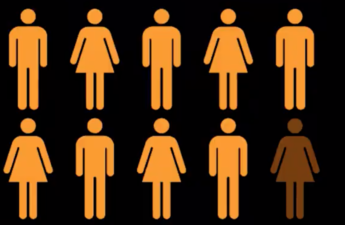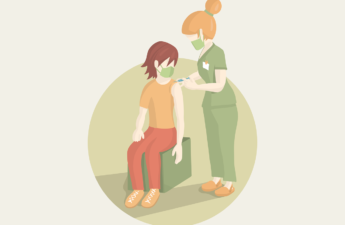Teresa Wiltz, Stateline

Photo: Visitor7 via Wikipedia, CC License
And earlier this month, a woman in St. Paul, Minnesota, was seriously injured after a bulldozer swept up her tent while she was inside, according to city officials.
“At a time when people experiencing homelessness are particularly vulnerable, this tragedy is devastating,” said St. Paul Mayor Melvin Carter III, a Democrat, in a statement emailed to Stateline. Carter said he wanted the city to cover the injured woman’s medical bills and he was working with his team “to determine how this horrible accident occurred.”
City workers, who have been instructed to forgo sweeps during the pandemic, believed that the tent was vacant, said Peter Leggett, a spokesman for the mayor.
Meanwhile, last week in California, a proposed moratorium on city sweeps of sidewalks and homeless encampments during the pandemic failed to pass the Berkeley City Council, according to the city clerk’s office. The council approved a second resolution making sweeps a low enforcement priority but allowing them to continue under some circumstances, such as to address health and safety problems.
New York City is continuing to dismantle homeless encampments during the pandemic. Earlier this month, homeless advocates wrote New York City’s Department of Homeless Services, urging city officials to “immediately stop sweeps of homeless encampments to comply with [CDC] guidelines.”
Isaac McGinn, a spokesman with the city’s Department of Homeless Services, told Stateline in an emailed statement that “we do not tolerate [encampments] and address them when they occur, so that we do not have any encampments in NYC.” He would not comment on whether the city is following CDC guidelines.
For now, Austin has temporarily paused camp sweeps “due to the higher risk for spreading infection of COVID-19,” spokeswoman Lara Foss told Stateline in an email, “unless they are in an area of immediate danger.”
But, according to a March 27 memo from the city manager’s office, Austin officials plan to resume the removals as soon as possible because “homeless encampment cleanups are mission essential.” The prospect worries Ellis.
“I try not to think about it,” Ellis said. “But it pisses me off, for sure.”
Banning Camping
A 2019 report by the U.S. Department of Health and Human Services and the U.S. Department of Housing and Urban Development found an increase in homeless encampments in cities, suburbs and rural areas in recent years.
The uptick in homeless encampments, or tent cities, is caused by “severe shortages of affordable housing,” according to the report. People choose to live in encampments when local shelters don’t have the capacity to house them, or when they think an encampment will give them more safety, security, autonomy and privacy, the report said.
The CDC guidance instructing cities to pause encampment sweeps is important because “it recognizes that the lack of housing leads to poor health outcomes,” said Maria Foscarinis, executive director and founder of the National Law Center for Homelessness and Poverty.
Sometimes city workers, county sheriffs or police officers who sweep encampments clean up debris but leave tents and impromptu shacks intact. In some cases, they post signs warning residents that a sweep is coming. And some cities, such as New York, use the sweeps as an opportunity to refer residents to social services and shelters.
During the pandemic, some cities are commandeering local hotels to house homeless people who are either sick with the coronavirus or are at higher risk of dying if they contract it.
Last week, the Los Angeles County Homeless Services Authority cleared an encampment of 43 people but was able to immediately put them in a local motel, said Sarah Dusseault, chairwoman of the authority. Two needed medical attention, she said.
And in Portland, Oregon, city officials haven’t completely stopped sweeps but are conducting them only where there is a safety hazard, according to Jonathan Lewis, program coordinator for the city’s Homelessness and Urban Camping Reduction program.
Recently the city had to clear an encampment along a highway off-ramp, Lewis said. Garbage was rolling down the hill and onto the freeway, creating a traffic hazard, he said.
But for the most part, he said, the city temporarily confines its visits to encampments to throw away garbage, pass out hand sanitizer and make sure residents have what they need to stay safe.
“Because we’re in a pandemic, we’re very closely following CDC guidelines,” Lewis said. “We want people to stay safe in their current location.”
Drop in the Bucket
Ellis has been out of work since Austin issued a stay-at-home order on March 24. Staying inside her tent all day drives her nuts, so she’s teamed up with activists from the Rent Strike ATX Mutual Aid Team to make masks. Each day, the team visits tent cities around Austin, making sure that inhabitants have food, water and protective gear.
The city has set aside hotel rooms for homeless people who are particularly vulnerable to the coronavirus. But few of her friends qualify, Ellis said.
The hotel rooms the city leased are “just a drop in the bucket,” Ellis said. “All these hotel rooms are empty. They should house us.”
The city recently put up two portable toilets and a hand-washing station in her encampment. But with 30 or so campers, it’s not enough to meet the need, Ellis said.
So, for now, she does what she can to help keep her fellow campers safe.
What scares her the most, she said, breaking down in tears: “Not being with my friends next year.”


